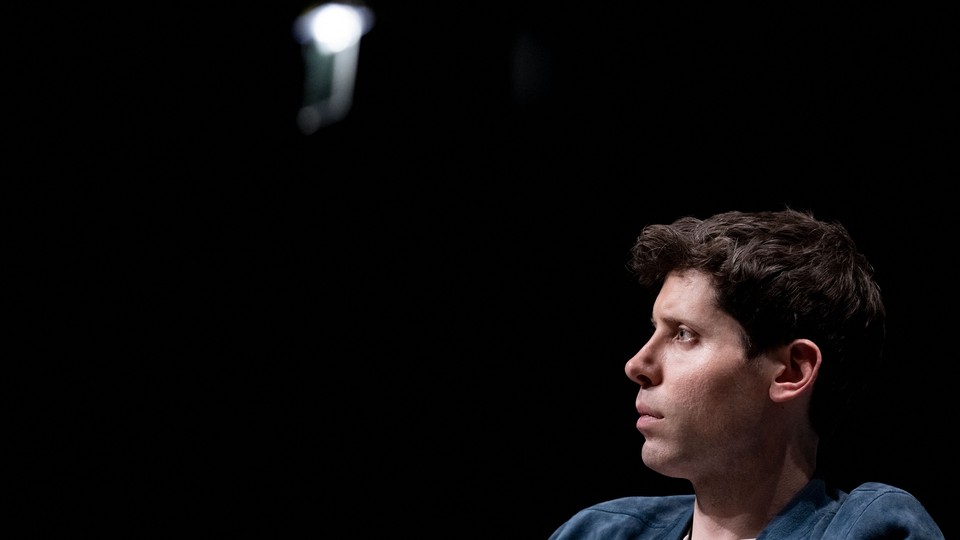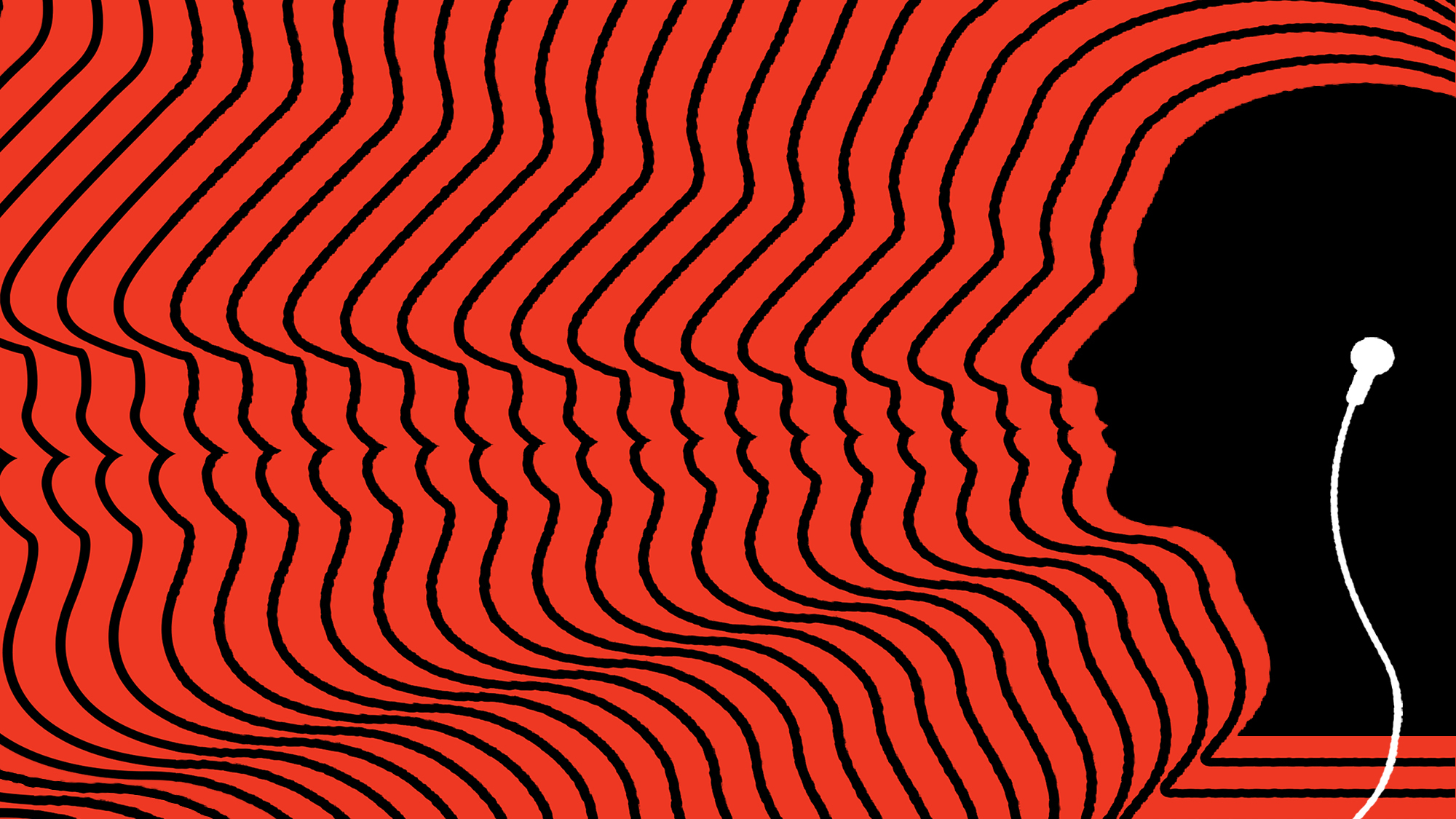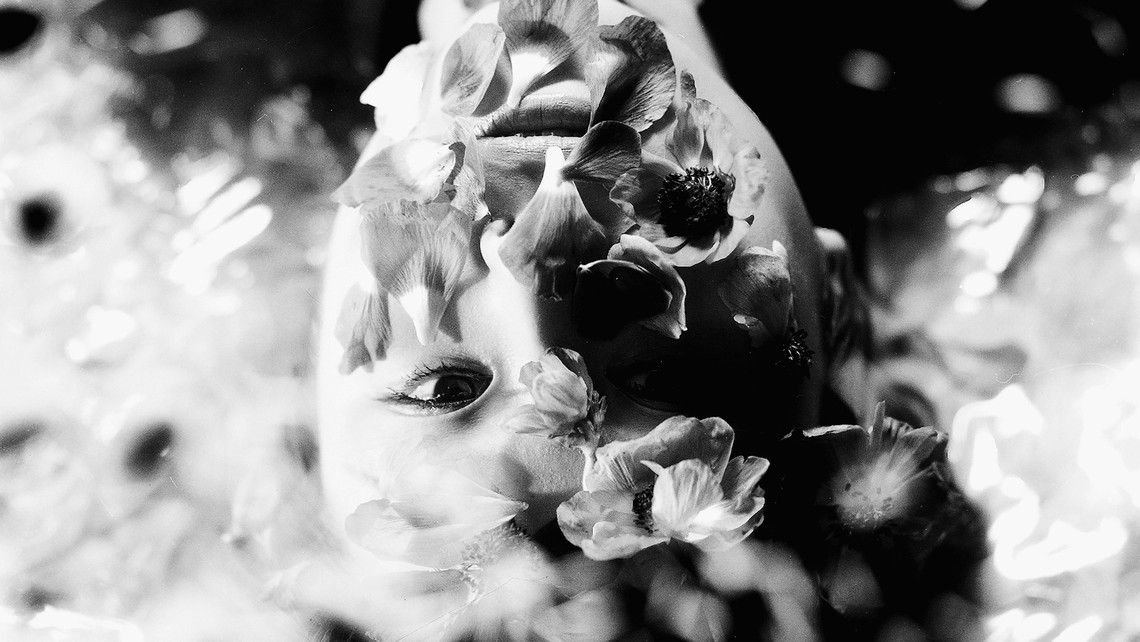The OpenAI Dustup Signals a Bigger Problem
6 min read
This is an edition of The Atlantic Daily, a newsletter that guides you through the biggest stories of the day, helps you discover new ideas, and recommends the best in culture. Sign up for it here.
Last week, OpenAI demonstrated new voice options for its AI assistant. One of them, called Sky, sounded strikingly similar to Scarlett Johansson’s portrayal of a robot companion in the 2013 movie Her. On Monday, Johansson released a statement expressing her anger and “disbelief” that Sam Altman, the company’s CEO, had chosen a voice that closely resembled her own; she alleged that the company had asked to use her voice months earlier for its ChatGPT service, and that she had said no. (Altman maintained that the voice of Sky was “never intended to resemble” Johansson’s, and he said that OpenAI had cast the voice actor before reaching out to Johansson.)
As my colleague Charlie Warzel wrote yesterday in The Atlantic, “The Johansson scandal is merely a reminder of AI’s manifest-destiny philosophy: This is happening, whether you like it or not.” I spoke with Charlie this morning about the hubris of OpenAI’s leadership, the uncanny use of human-sounding AI, and to what extent OpenAI has adopted a “move fast and break things” mentality.
First, here are three new stories from The Atlantic:
- The British prime minister bowed to the inevitable.
- “The judge hates Donald Trump.”
- Ozempic patients need an off-ramp.
Her Voice
Lora Kelley: From the beginning, OpenAI has emphasized its lofty mission “to ensure that artificial general intelligence benefits all of humanity.” Now I’m wondering: Are they just operating like any other tech company trying to win?
Charlie Warzel: OpenAI sees a huge opening for their technology—and in some sense, they’re behaving like any other tech company in trying to monetize it. But they also need a cultural shift in people’s expectations around using generative-AI tools. Right now, despite the fact that lots of people use generative AI, it’s still only a subset. OpenAI is trying to find ways to make this technology feel a little more human and a little easier to adopt in people’s everyday lives. That to me was the salient part of the situation with Scarlett Johansson: She alleges that Sam Altman said that her voice would be comforting to people.
I believe that the company sees its new AI assistant as a step toward making OpenAI even more of a household name, and making their products seem less wild or dystopian. To them, that type of normalization probably feels like it serves their revolutionary vision. It’s also so much easier to raise money for this from outside investors if you can say, Our voice assistant is used by a ton of people already.
Lora: Johansson alleges that the company copied her voice when developing Sky. Last week, Sam Altman even posted the word “her” on X, which many interpreted as a reference to the movie. Even beyond how similar this voice sounded to Johansson’s, I was struck by how flirtatious and giggly the female-voiced AI tool sounded.
Charlie: There are many levels to it. The gendered, flirty aspect is weird and potentially unsettling. But if the allegations that the tool is referencing Her are accurate, then it also seems kind of like an embarrassing lack of creativity from a company that has historically wowed people with innovation. This company has said that its mission is to create a godlike intelligence. Now their newest product could be seen as them just copying the thing from that movie. It’s very on the nose—to say nothing of the irony that the movie Her is a cautionary tale.
Lora: How does the narrative that AI is an inevitable part of the future serve OpenAI?
Charlie: When you listen to employees of the company talk, there’s this sense of: Just come on board, the train isn’t going to stop. I find that really striking. They seem to be sending the message that this technology is so revolutionary that it can’t be ignored, and we’re going to deploy it, and your life will inevitably change as a result. There’s so much hubris there, for them to think that a group of unelected people can change society in that way, and also that they confidently know that this is the right future.
I don’t want to reflexively rail against the idea of building new, transformative technologies. I just think that there is a hand-waving, dismissive nature to the way that this crew talks about what they’re building.
Lora: What does this dustup tell us about Altman and his role as the leader in a moment of major change?
Charlie: Sam Altman is really good at talking about AI in a very serious and nuanced way—when he does it publicly. But behind the scenes, it may be a different story.
When he was fired from OpenAI in November, the board said that he was not “consistently candid” in his conversations with them. If Scarlett Johansson’s allegations are true, it would also suggest that he was not behaving in a consistently candid manner in those dealings.
And when stuff like this comes to light, it actually does cast doubt on his ability to effectively lead this company. The public stance of OpenAI has always been that the company is building this transformative technology, which could have massive downsides. However, they say that they operate in an extremely ethical and deeply considered manner—so you should trust them to build this.
This episode suggests that perhaps the company has a standard “move fast and break things” mentality. That, on top of other recent unforced errors—Altman’s abrupt firing before getting rehired, the resignations of employees focused on AI safety—gives us a view into how the company operates when it’s not being watched. Knowing that this is the group of people building this technology doesn’t give me a great sense of relief.
Related:
- OpenAI just gave away the entire game.
- Does Sam Altman know what he’s creating?
Today’s News
- The CDC reported a second human case of bird flu, in a Michigan farmworker. It remains a low risk to the general public, according to officials.
- A New York Times report found that an “Appeal to Heaven” flag, a symbol “associated with a push for a more Christian-minded government,” flew at Supreme Court Justice Samuel Alito’s vacation home last summer. Alito and the court declined to respond to questions about the flag.
- In a symbolic but historic move, Norway, Spain, and Ireland said that they would formally recognize a Palestinian state next week. In response, Israel has recalled its ambassadors from those countries.
Dispatches
- The Weekly Planet: Plastic allows farmers to use less water and fertilizer, John Gove writes. But at the end of each season, they’re left with a pile of waste.
Explore all of our newsletters here.
Evening Read

Why Is Charlie Kirk Selling Me Food Rations?
By Ali Breland
Charlie Kirk is worked up. “The world is in flames, and Bidenomics is a complete and total disaster,” the conservative influencer said during a recent episode of his podcast The Charlie Kirk Show. “But it can’t and won’t ruin my day,” he continued. “Why? ’Cause I start my day with a hot America First cup of Blackout Coffee.” Liberals have brought about economic Armageddon, but first, coffee …
These ads espouse conservative values and talking points, mostly in service of promoting brands such as Blackout Coffee, which sells a “2nd Amendment” medium-roast blend and “Covert Op Cold Brew.” The commercial breaks sounded like something from an alternate universe. The more I listened to them, the more I came to understand that that was the point.
Read the full article.
More From The Atlantic
- A peace deal that seems designed to fail
- How do the families of the Hamas hostages endure the agony?
- The difference between polls and public opinion
- The great academic squirm
Culture Break

Look inside. R. O. Kwon’s new novel, Exhibit, is a searching and introspective book about overcoming the barriers to self-discovery, writes Hannah Giorgis.
Read. “Nothing Is a Body,” a new poem by Jan Beatty:
“I wish I had the dust of you, a grave / to visit. I’m running on your sea legs right now, / tired of the little bits—not even leftovers.”
Play our daily crossword.
Stephanie Bai contributed to this newsletter.
When you buy a book using a link in this newsletter, we receive a commission. Thank you for supporting The Atlantic.



